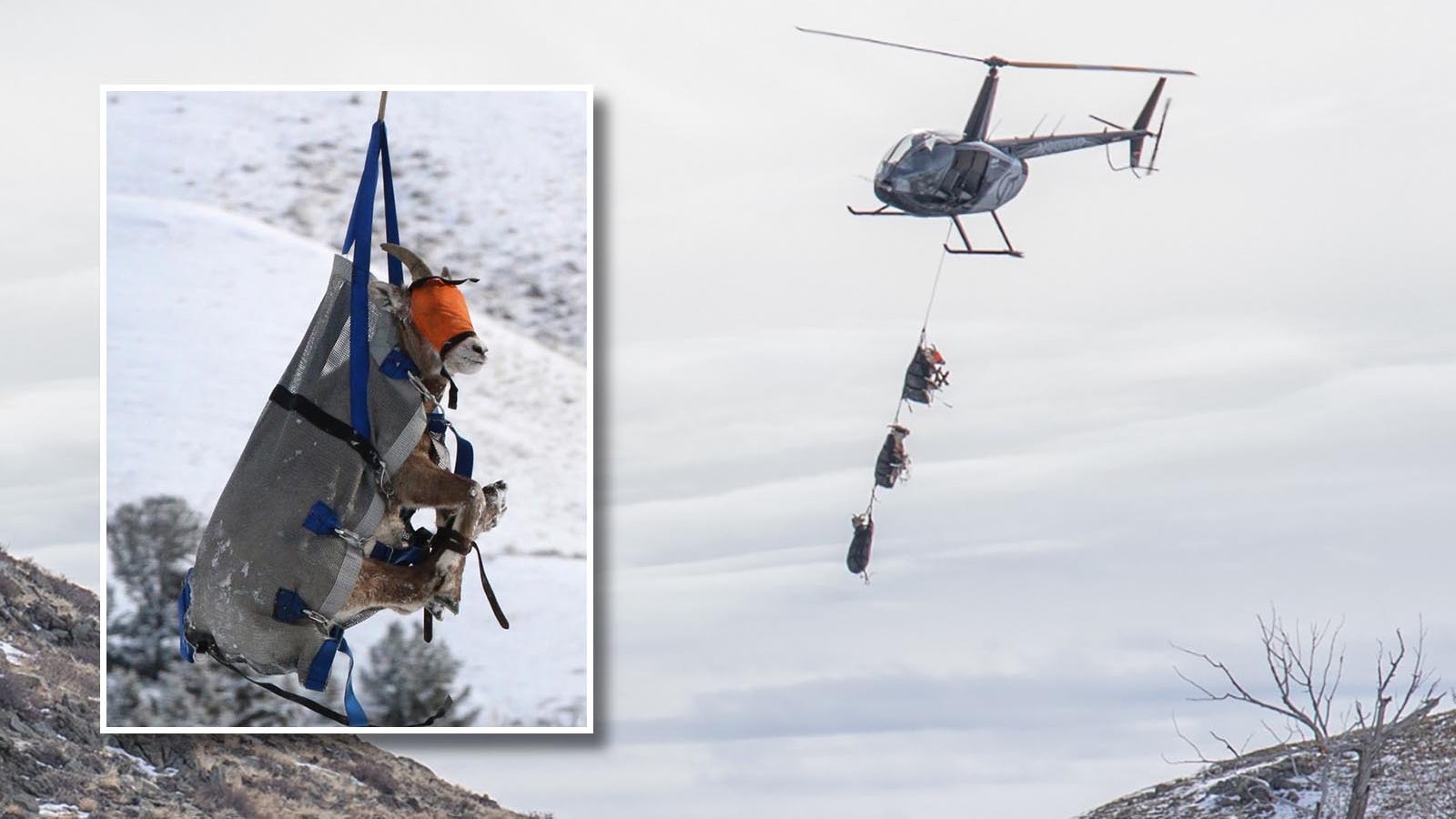There’s bad news for those who might have a hankering for grizzly sausage, stew or steaks on menus at their favorite Wyoming restaurants. Legally, that can’t happen.
If the way is cleared for a grizzly hunting season this fall, hunters won’t be able to sell or barter any part of the bears they kill, and that would include selling the meat to restaurants.
Putting wild meat of any sort up for sale would undo decades of wildlife management. It would hearken back to the days when commercial slaughter nearly wiped out numerous species, retired Wyoming Game and Fish Department Game Warden Duane Kerr of Green River told Cowboy State Daily.
Restaurants “can’t put that on their menu and sell that as a meal,” he said.
The reasoning behind bans on selling wild meat “goes clear back to the days of market hunting,” Kerr said. “Market hunting led to just about the extinction of just about every game species there is.”
According to Wyoming law, selling or bartering meat or other parts from wildlife is a high misdemeanor, punishable by up to a year in prison and/or a $10,000 fine for each offense.
Grizzly-Sized Tuna Sold For $1.3 Million
Selling wild things for food isn’t banned everywhere. For instance, commercial fishing from wild populations in the oceans is big business all over the world.
And one fishing company recently scored huge. A wild-caught, 608-pound tuna described as “weighing as much as a grizzly bear” sold for $1.3 million in Japan, The Washington Post reported.
But while commercial fishing in the oceans remains profitable for some, the sale of meat from land animals has been banned in the U.S. for decades.
Selling fish caught for sport, such as trout from the wild, is similarly banned.
Slaughtering Wildlife For Profit
In the time before agencies like Game and Fish and hunting regulations, people killed wildlife whenever and wherever they wanted to. And some commercial hunters turned a tidy profit by slaughtering as many animals as they could, then selling the meat, hides and other carcass parts.
Commercial hunting nearly eliminated American plains bison. And passenger pigeons — once popular game birds — were blasted into extinction by 1914.
By the late 19th and early 20th centuries, the populations of elk, deer and numerous other species had also plummeted.
Then conservation became the name of the game, including regulated hunting. Hunters had to buy licenses and hunt only during set season and within bag limits.
Selling meat and animal parts was also banned.
Hunters are still free to give away meat. Or, they can share it at “sportsman’s potlucks,” where people can sample meat from all sorts of animals, Kerr said.
But hunters can’t charge for it, and neither could a restaurant charge for meat donated by hunters.
Some eateries might feature trout or venison on their menus. However, that comes from fish or animals raised on specially permitted farms and ranches.
And frequently, when a restaurant offers “elk,” it’s actually meat from red deer. Red deer are Old World cousins of elk, and are commercially raised on ranches in places such as New Zealand, Kerr said.
Grizzly Delisting Looms
Grizzlies could soon be delisted from federal protection in Wyoming, Montana and Idaho.
A federal judge recently gave the U.S. Fish and Wildlife Service (FWS) until Jan. 20 to decide on Wyoming’s petition to have grizzlies delisted in the Greater Yellowstone Ecosystem.
Similar petitions from Montana and Idaho are also pending and could also be ruled on by FWS this month.
If that happens, Wyoming Game and Fish would classify grizzlies as a trophy game animal and open a limited hunting season for them.
Cook Bears To Well-Done
As with black bears, which are currently legal to hunt in Wyoming, hunters would not be required to keep the meat from grizzlies, even though they could not legally sell it.
Outdoorsman and northeast Wyoming resident Owen Miller hunts black bears, and keeps the meat.
He’s never eaten grizzly, but said he’s willing to give it a try.
He added that he has a brother who lives in Alaksa, where grizzly hunting is legal.
“He’s eaten it (grizzly) and said he’s never had a problem with it,” Miller told Cowboy State Daily.
He cautioned that bear meat must be cooked thoroughly.
“I usually like my steak medium rare. But with bear, you want it well done,” he said.
That’s because, as with undercooked pork, eating undercooked bear meat carries the risk of trichinosis. That’s parasitic, food-borne disease that can cause severe illness, lingering health complications and occasionally even death.
Wildlife Black Market
There’s a world-wide black market for wildlife parts, Kerr said. Even if grizzly meat didn’t become a hot commodity, there’s a good chance that some people might try selling their claws, skulls or other parts.
Years ago, there was a rash of illegal black bear killings in some Eastern states, because rumor had it that bear bladder ground into a powder could enhance sexual performance, he said.
The one wildlife part in Wyoming that can legally turn a big profit is shed antlers.
Male elk and deer shed their antlers in late winter or early spring. Hunting for shed antlers is a popular outdoor sport.
Collectors will also pay for the antlers — which can be used to make home décor, dog chews and numerous other products.
A Boy Scout troop in Jackson raises money every spring by selling shed elk antlers picked up from the nearby National Elk Refuge.
Shed antlers are an exception to the rule of not profiting from wildlife parts, because animals naturally leave them behind, Kerr said. So, people don’t have to kill the animals to get them.
Mark Heinz can be reached at mark@cowboystatedaily.com.





